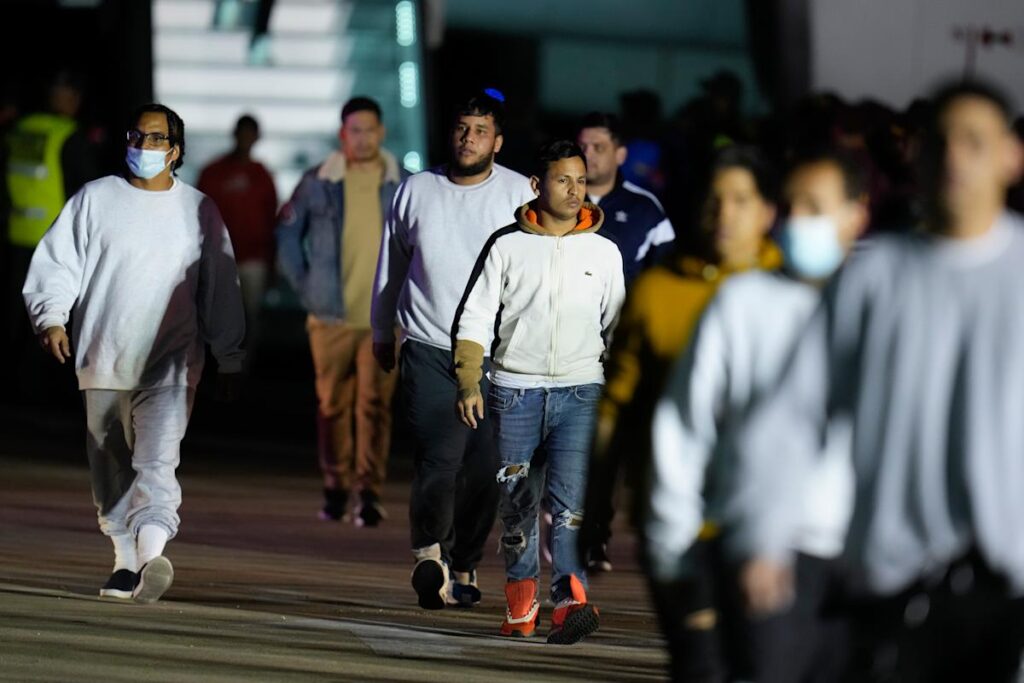President Donald Trump is asking the Supreme Court to allow him to resume his use of wartime powers to deport alleged gang members.
In an emergency appeal filed Friday, the Justice Department argued that a lower court judge unconstitutionally intruded on the president’s national security powers by barring Trump from using the two-century-old Alien Enemies Act to swiftly deport Venezuelans the administration says are members of Tren de Aragua.
“This case raises paramount questions about the President’s constitutional and statutory authority to protect the Nation against elements of a designated foreign terrorist organization that the President has determined has been ‘conducting irregular warfare and undertaking hostile actions against the United States,’” acting Solicitor General Sarah Harris wrote.
Almost two weeks ago, the Trump administration flew more than 200 alleged Tren de Aragua members from the U.S. to El Salvador, where they were put in an anti-terrorism prison known for its brutal conditions.
U.S. District Judge James Boasberg ordered further deportations under the Alien Enemies Act temporarily halted while litigation over the issue continues. The judge raised concerns about due process, particularly because some of the deportees claimed they were misidentified as members of the gang. And he emphasized that his order did not bar any arrests, detentions or prosecutions — only deportations.
He has also pledged to determine whether U.S. officials deliberately violated his order to turn around planes carrying the initial groups of deportees.
Trump subsequently called for Boasberg’s impeachment, prompting an unusual statement from Chief Justice John Roberts warning against impeaching judges on the basis of their rulings.
Earlier this week, a divided panel of the D.C. Circuit Court of Appeals allowed Boasberg’s order to remain in place, leading to Trump’s emergency appeal at the Supreme Court. The panel splintered, with one judge raising concerns about due process, another suggesting Trump had misused the 1798 law by claiming Tren de Aragua had mounted an “invasion” against the United States, and a third siding with the administration, arguing that the deportees should have filed their claims in Texas rather than Washington.
Harris, in her filing, pushed back against concerns raised by one of the appeals court judges, Patricia Millett, an appointee of President Barack Obama, who worried that El Salvador’s prisons had been known for human rights abuses.
Harris said the administration would not confirm whether El Salvador had made commitments about how to treat U.S. deportees — including whether the country had agreed to abide by the Convention Against Torture — because doing so would “divulge sensitive negotiations” and could result in the United States “losing its foreign partners’ trust.”
Read the full article here


